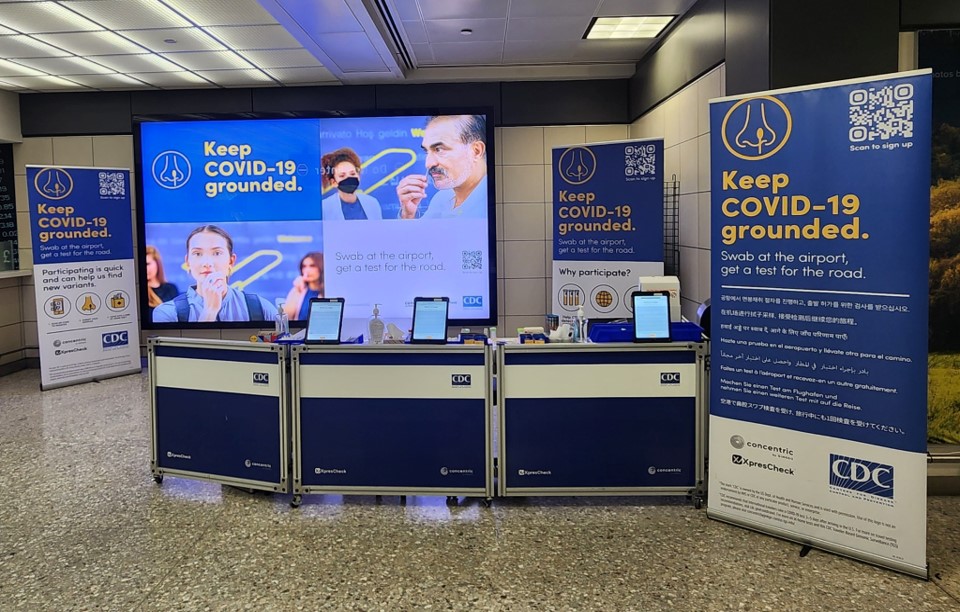The US Centers for Disease Control and Prevention (CDC) is conducting a new pilot on samples it is collecting as part of its Traveler-based Genomic Surveillance (TGS) program that will provide early detection of flu, RSV and select other respiratory viruses, in addition to SARS-CoV-2.
The pilot, which will last for several months, will be implemented by Ginkgo Bioworks and XWELL. Concentric by Ginkgo, the biosecurity and public health unit of Ginkgo Bioworks, and XpresCheck by XWELL are partnering to expand their work with the CDC to monitor more than 30 new viruses, bacteria and antimicrobial-resistant targets.
Samples that test positive for these viruses will be sequenced and uploaded to public databases to provide valuable information to public health officials and policymakers. The program expansion is expected to launch at four of the program’s seven major international airports, in New York, San Francisco, Boston and Washington DC.
“The expansion of the Traveler-based Genomic Surveillance program to flu, RSV and other pathogens is essential as we head into fall respiratory season. The TGS program, which began during the Covid-19 pandemic, acted as an early warning system to detect new and rare variants of the SARS-CoV-2 virus and will do the same for other respiratory viruses going forward,” said Dr Cindy Friedman, chief of CDC’s Travelers’ Health Branch.
TGS is a multimodal platform that consists of three complementary approaches including voluntary nasal sampling of arriving international travelers, aircraft testing and wastewater sampling at seven airports across the USA. TGS provided early detection of the SARS-CoV-2 variant BA.2.86 entering the USA within days of its global identification. As the infected traveler had originated travel in Japan, this finding also informed the public health community that the new variant had also spread to Asia.
As of September 2023, TGS had enrolled more than 360,000 air travelers. Participation in the program is voluntary and anonymous. The program covers flights from more than 135 countries from all World Health Organization regions.
For more on security, please click here.

